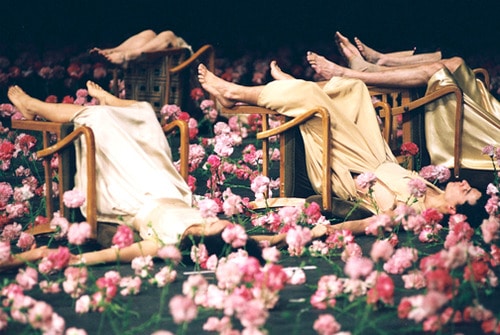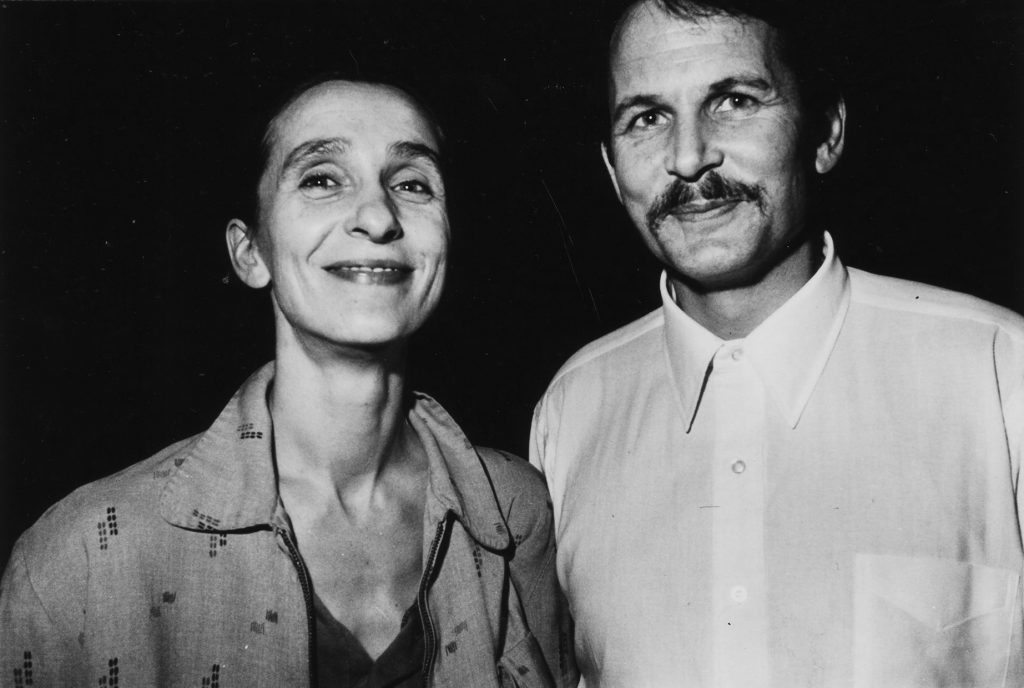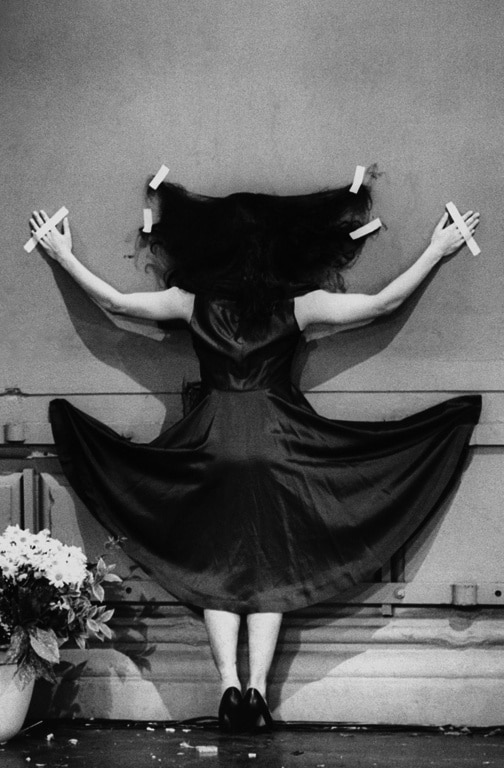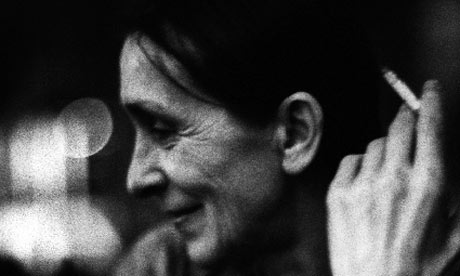This way from row nine, it is like being knee-deep in carnations yourself. The heads of the audience in front of me merge silently into a forest of stems crowned with pink, through which dancers carefully step back and forth like leggy chickens.
The find is great: Nelken by Pina Bausch depicts paradise as a place where you have to be careful or things will go wrong. The carnations force the dancers to be careful. As a spectator, you go along with them, without all the underlying thoughts immediately coming through to you.
Pina Bausch (1940-2009) became world-famous for a reason. Her way of working has become standard in theatre practice: gathering material together with the dancers, every movement can be dance, multidisciplinary use of resources and people, associative yet tight editing, minimalism to focus on details, maximalism in inflating those details through repetition. In the 1970s, when Bausch was developing her ideas, it was unprecedented, and it was not just audiences in Wuppertal that were turned upside down.

Nelken (1982) is one of the braver pieces in Bausch's oeuvre and perhaps that is why it is so popular. In the dazzling set with the pink carnations, said to be inspired by Dutch bulb fields, it is about child's play and overbearing surveillance. Four sheepdogs, security guards throwing themselves off risers: these are clear signals, but they do not match the chill that performer Andrey Berezin puts into his body. Berezin, who has worked at Wuppertal Tanztheater since 1994, brings a certain harshness with his body and awkward Russian accent that is actually missing from the rest of the play.
Bausch made Nelken when she worked in Wuppertal for 10 years. She was met with a lot of opposition, from both the public and the press, in those early years of the Tanztheater Wuppertal. 1982 was also the year she had her first and only child, with her new life partner Donald Kay, not long after her previous love and set designer Rolf Borzik had died in 1980.

New love instils fear. But Nelken apart from the desire for overwhelming happiness, is mainly about the blindness of fathers and mothers, and about fatherly state control and nannying that hinders the real interaction between citizens and foreigners. This theme comes across well when Berezin once again asks for a passport, but often the play does machinel to, as if thirty-five years after the fact, the proper context for this piece is missing.
Men walking around in dresses and someone being tickled under their feet while praying - who is surprised by that anymore? Whole tribes apparently, given the international discussions on veils, women's rights and the influence of rabid believers on public life. Personally, I might prefer a more rugged piece in return, such as Blaubart or Walzer, and perhaps I would also like to see a rewrite, rather than a 'reenactment'. How would a contemporary maker reenact Bausch's gestures, as precise as they are subversive? How would an artist of a younger generation want to interrupt today's world? That need is rather lacking in Nelken, though of course it is great that through this tour the play is reaching a whole new and not just a nostalgic audience.

Despite the fact that the role-playing between husband and wife feels dated, and at some point I get a need for someone in trainers or holding a mobile phone, it remains Nelken impress. The slow pace, the silences, the effective simplicity of building with loose elements, the unaffected and obvious form of audience participation and also the longing for true love: it is unmistakably Bausch. With her work, she laid the foundations for many artists after her. For those who like Waltz, De Keersmaeker, Greco & Scholten, Truus Bronkhorst or Jan Martens, this is "back to the roots".
The Pina Bausch Foundation has started a participation project: The Nelken Line. And that this is catching on was quite noticeable at the end of the performance at the Stadsschouwburg yesterday:
Here is a nice interview with Pina Bausch by Eva-Elisabeth Fischer und Frieder Käsmann, Bayerischer Rundfunk, 1994.

